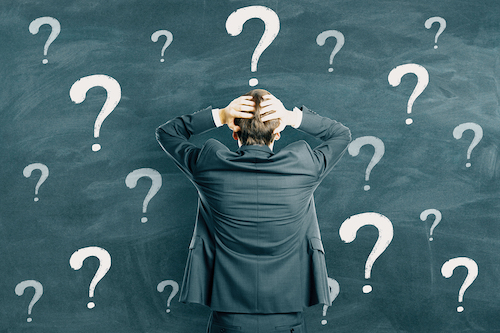 A year out from the 2020 Presidential election, Americans are reporting issues like politics, health care and mass shootings as the main issues causing them significant stress.
A year out from the 2020 Presidential election, Americans are reporting issues like politics, health care and mass shootings as the main issues causing them significant stress.
Every year, the American Psychological Association conducts a Stress In America survey. This year 3617 adults in the US were polled.
More than 7 in 10 (71 per cent) of adults said mass shootings were a significant source of stress in their lives. This is up from 2018 when 68 per cent said mass shootings significantly stressed them. Hispanic adults are most likely to cite mass shootings as a source of stress with 84 per cent indicating they felt significant stress due to mass shootings. This was followed by black adults, Asian adults, Native American adults and white adults.
Shane Owens, PhD, a board-certified psychologist, says stress surrounding mass shootings can be amplified by media coverage.
“Those are acts of violence against the most vulnerable people in places where they should be safest. It’s natural for that to shock us. It’s important to remember that school shootings are very rare. School shootings appear to happen more frequently than they actually do because of the ways the media covers them. Nothing inspires anxiety as much as constantly running looped b-roll of people being led out of a school with their hands up. The anxiety is magnified by not breaking for commercials and the pulsating, urgent music the media uses to accompany their coverage,” he told Theravive.
Fifty-six per cent of those surveyed said the 2020 US Presidential election was a significant cause of stress in their life, up from 52 per cent from those who were asked in the lead up to the 2016 election.
Owens says he isn’t surprised people are stressed out by politics, even though the Presidential election is still a year away.
“Politicians and the media want people to be stressed. Politicians need you to believe that the world will end if you do not cast your vote for them. The media sell more ads by covering the most sensational news, even if they have to create that themselves. People tend to overdose on coverage of the election and politics in general,” he told Theravive.
He advises people adjust the way they consume news and media in the lead up to the election.
“The best thing you can do is watch the news sparingly, especially if you tend to watch cable news. In addition, pay more attention to webpages and sections of the newspaper that cover things other than politics,” he said.
Among the other issues causing Americans stress, 69 per cent of those surveyed said they were significantly stressed about health care. Of the 47 per cent who said they stressed about health care at least sometimes, 64 per cent said it was the cost of health care that caused them the most stress. The 71 per cent of adults surveyed with private insurance were more likely than the 53 per cent with public insurance to say they were stressed by the cost of health care. More than half of those surveyed (55 per cent) worry they won’t be able to pay for health care they might need some time in the future.
Stress related to climate change has been on the rise since last year. 56 per cent of those surveyed in 2019 say they are stressed about climate change, compared with 51 per cent last year.
Discrimination is another source of stress that has increased. In 2015, 20 per cent of those surveyed said they were stressed about discrimination, whilst in 2019 25 per cent said they were worried about the issue.
64 per cent of LGBT adults said discrimination stopped them living a productive and full life. 63 per cent of people of colour felt the same way in 2019. In 2015 less than half of people of colour felt like that.
Not all stress is bad, and Owens says in some cases it can inspire positive action.
“My general rule is that stress is a problem when your coping is unhealthy. If you handle your stress by reading about candidates and issues, becoming politically active, and voting, then you are likely OK. If you cope by trolling people with whom you disagree on social media while drinking a half a bottle of whiskey, you need a new outlet. Generally, if you can find personally meaningful ways to cope with your stress while managing to eat well, exercise, and get enough sleep, you are doing fine,” he said.
But he warns that too much stress can be damaging, and those experiencing significant constant stress should seek help.
“Even if you cope well with it, constant, inescapable stress has negative long-term effects on health. These include gastrointestinal issues, cardiovascular problems, obesity, substance abuse, anxiety, and depression.”
Elizabeth Pratt is a medical journalist and producer. Her work has appeared on Healthline, The Huffington Post, Fox News, The Australian Broadcasting Corporation, The Sydney Morning Herald, News.com.au, Escape, The Cusp and Skyscanner. You can read more of her articles here. Or learn more about Elizabeth and contact her via her LinkedIn and Twitter profiles.